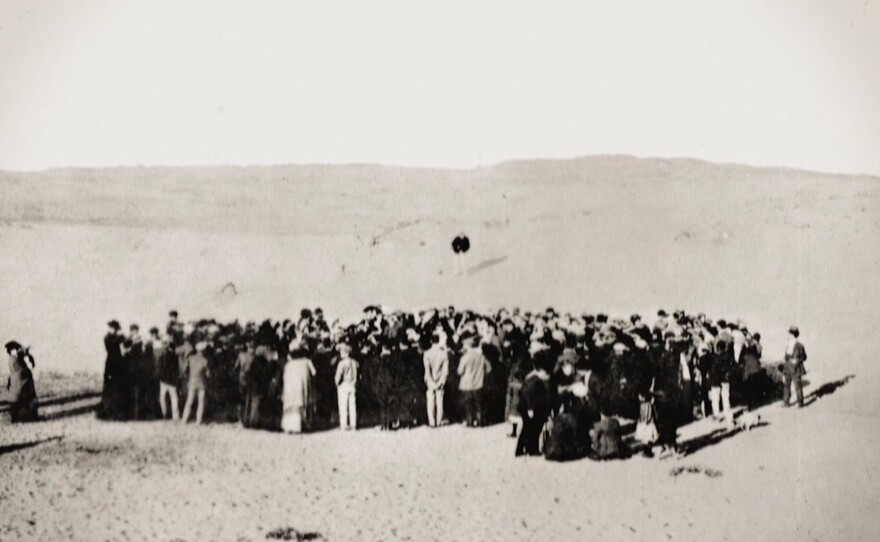J Street, the self-described political home for pro-Israeli, pro-peace Americans, is hosting a screening tonight of "1913: Seeds of Conflict," a documentary that explores how the seeds of today’s Middle East conflict were sown in Palestine during the Ottoman Empire.
"1913: Seeds of Conflict" is a documentary that does not pretend to be objective, and that’s according to its director Ben Loeterman.
"A documentary seems often to be judged on whether it is fair or balanced. And my films have never been fair or balanced," Loeterman said. "'1913: Seeds of Conflict' is not a film I would call fair or balanced. It’s not fair in the sense that it’s not a survey over time, it’s a glimpse of one little clump of history, it’s one moment. Some people look at the film and say afterward, 'But you don’t talk about the British'. We don’t talk about the British. So on the one hand it’s not a survey, and I’m drawn much more towards stories that I think can inform part of a larger whole then necessarily tell the larger whole. The other thing I try to do I not tell an objective, omniscient kind of history. What I love about this film is that we get to bounce back and forth between the actual characters who made that history and hear what they have to say in their words at that moment. I want you to hear a cacophony and complexity of points of view, to have a little trouble following it maybe, which is okay with me because that’s how life is and that’s how history is."
The film addresses how point of view can influence our sense of history. Take a single black and white photograph that Michelle Campos (Ottoman Historian at University of Florida) analyzes in the film.
"It all depends on where the photographer aims the camera, right?," she asks the audience in the film. "You have the famous image of shareholders for what would become Tel Aviv in 1905 standing among the sand dunes. Well, the photographer was positioned to their south photographing them to the north in which there were in fact sand dunes. Had he turned 180 degrees to photograph himself behind them they would have seen vast orchard groves of Christian and Muslim landowners."
A markedly different image.
Loeterman said the film has "gotten very mixed responses and the film has played for very different audiences and that matters. I think first of all, like me, a relatively uneducated West Coast Jew growing up, people especially Jews tend to watch this film and learn a lot."
Monday night's film screening will also feature a Q&A after the film with Loeterman and film scholar Professor Lawrence Baron.
"The thing about screenings for a documentary filmmaker is what live theater is for an actor," Loeterman said. "It's quite a different thing to sit and look at the film, and face and ask questions of and answer questions of the people who are looking at the film with you. I always watch the audience I’m screening with an there are always a couple moments when you’re looking to see do they get it, do they titter, do they laugh, are they nervous, are they horrified."
This event is free to the public. Register your name at sandiego@jstreet.org with subject heading: Film registration. If you miss this screening, you can still see the documentary on PBS on June 30.







